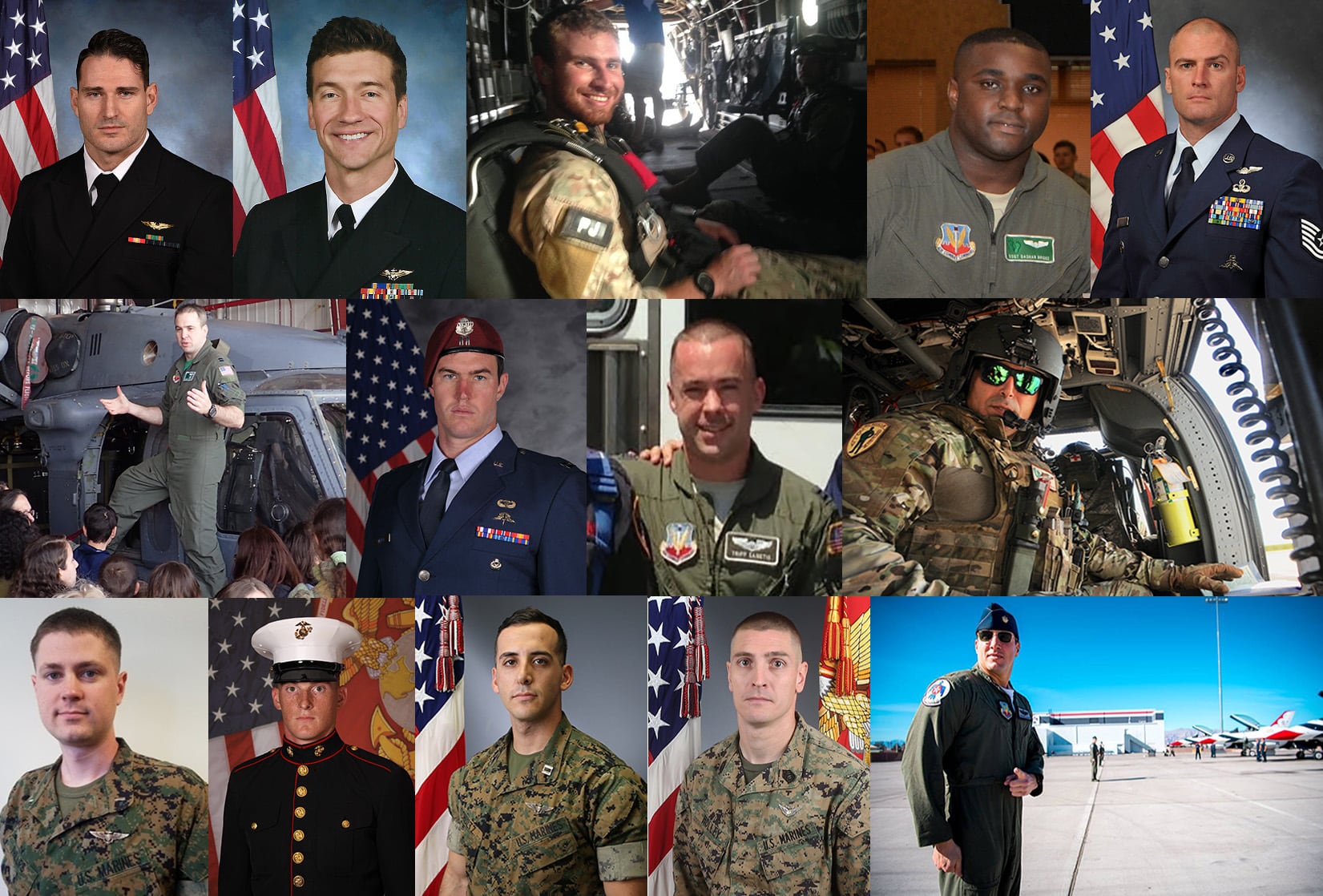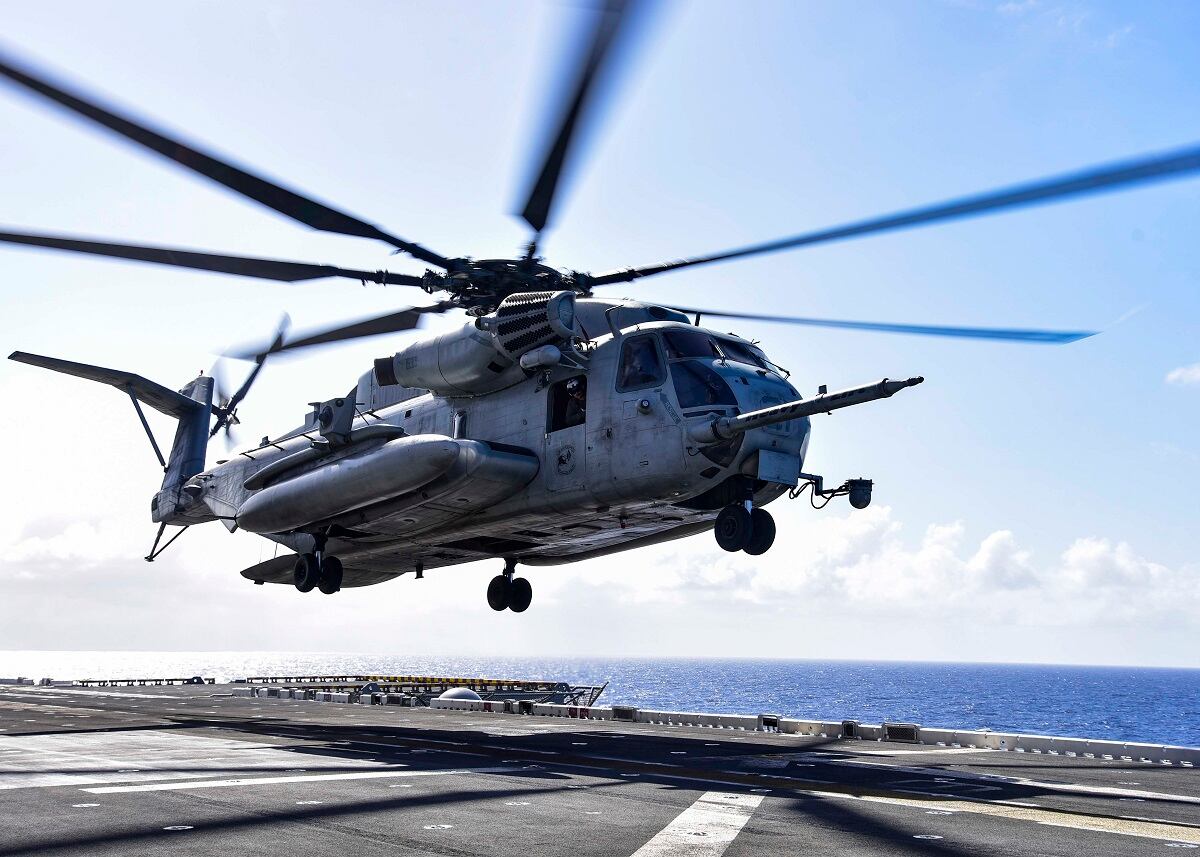A recent audit found that most Marine Corps aviation squadron commanders reviewed by investigators were not accurately reporting their unit’s aircraft readiness, providing inconsistent and unreliable data in their reporting, and Marine aviation officials at higher levels failed to provide clear guidance or oversight on readiness.
Investigators with the Department of Defense Inspector General reviewed 10 F/A-18 and CH-53E squadrons within 2nd Marine Air Wing at Marine Corps Air Station Cherry Point, North Carolina, and at 3rd Marine Air Wing, Marine Corps Air Station Miramar, California.
The main driver of the misreporting seems to have been an unclear order that outlined when, what and how commanders were to create and submit readiness reports. Also, the lack of proper guidance and oversight by higher level commanders may have exacerbated the problem.
Among the inspector general’s findings:
- Nine squadron commanders did not report the present state of their aircraft readiness.
- Nine squadron commanders were inconsistent in using time frames to report aircraft readiness.
- Five squadron commanders overstated the number of mission-capable aircraft according to Mission Essential Tasks needs.
- Four squadron commanders did not accurately provide their aviation readiness in the reporting system.
“As a result, Marine Corps officials do not have an accurate assessment of what the aircrafts’ capabilities currently are, which could negatively impact planning for training and operations by assigning a mission to an aircraft that it is not capable of performing,” investigators reported.
RELATED

That lack of an accurate assessment could potentially “put mission accomplishment and personnel at risk.”
Investigators found the following aircraft quantity overstatements by these squadrons during December 2017 to February 2018:
- Heavy Helicopter Squadron (HMH) 361 at MCAS Miramar, California, overstated by two in December.
- HMH 461 at MCAS New River, North Carolina, overstated by one in December.
- HMH 464 also at MCAS New River, overstated by three in December; two in January; three in February.
- Fighter Attack Squadron (VMFA) 314 at MCAS Miramar in San Diego, California, overstated by one in February.
- VMFA 224 at MCAS Beaufort, South Carolina, overstated by one in January.
Investigators recommended that Marines revise orders to clear up confusing definitions in readiness reporting, implement training on reporting readiness and develop procedures for intermediate commands to verify the completeness and accuracy of their subordinates’ reports.
Though Lt. Gen. Steven Rudder, the deputy commandant for aviation, agreed to make changes to the reporting process as investigators recommended, he did not provide specifics on how his method would “provide a more accurate readiness assessment” nor whether it would be required of his subordinates.
For that reason, investigators consider the finding unresolved.

In addition, Lt. Gen. Brian Beaudreault, the deputy commandant for plans, policies and operations, agreed to revise the orders to define “present state” for readiness reporting, clarify how mission-capable quantities should be reported, and how METs should be properly reported. That portion was deemed resolved and will be closed once changes are implemented.
But, while Beaudreault agreed to coordinate with Rudder to develop procedures to ensure intermediate commands verify their subordinate units’ reports, he didn’t specify how the verification would be received. So, investigators consider that portion unresolved.
Leaders have plenty of time to make the fixes, though. The IG report gives units at Marine Forces Pacific until the end of October and those at Marine Forces Command until the end of January. The order rewrite is expected to be finished by the end of October.
The system that runs the readiness reports has a planned update in September and another in May, according to the IG report.
Todd South has written about crime, courts, government and the military for multiple publications since 2004 and was named a 2014 Pulitzer finalist for a co-written project on witness intimidation. Todd is a Marine veteran of the Iraq War.





